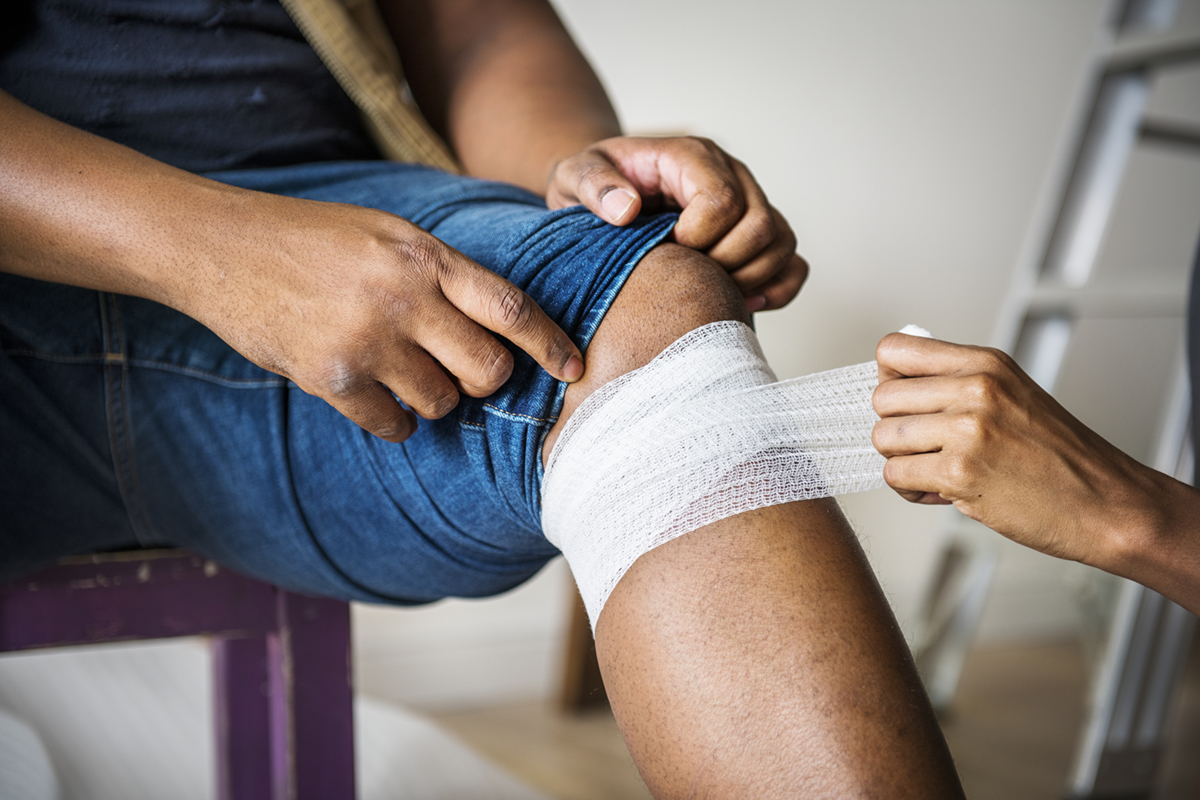Most of us experience minor injuries as we go along with our daily lives.
These small injuries are more commonly known as contusions, which is the medical term for a bruise. It is a kind of hematoma, which refers to any accumulation of blood outside of a blood vessel.
A contusion involves injured capillaries or blood vessels, as well as blood that has spilt out into the areas around it.
What Are the Different Types of Contusions?
There are 3 main kinds of contusions:
- Skin contusions
- Muscle contusions
- Bone contusions
Let’s dig a little deeper:
Soft Tissue Contusions (Skin and Muscle)
This refers to injuries that happen to your skin tissue or muscle.
A soft tissue contusion can happen because of many reasons, whether that’s scraping your knee, twisting your arm, or even when you’re getting your blood drawn for a blood test.
They are easier to identify and diagnose because of the distinctive attributes, like:
- A minor swell/bump for certain cases
- Skin discolouration that can take on a blue, black, red, purple, or green shade
- Pain that worsens with applied pressure
Even though both skin and muscle contusions can lead to pain, muscle contusions usually hurt more. This may be especially so if it affects a muscle that you tend to use.
Bone Contusions
Remember the discoloured bruises you see when you bump into something hard?
This is actually a bruise developed over a bone, which is also known as a bone contusion. Bones are made of blood vessels and tissue like the other parts of your body.
When injured, they can also leak blood. Symptoms of a bone contusion include:
- Tenderness
- Swelling
- Persistent pain
It’s not easy to diagnose a bone contusion because they are impossible to see even with an x-ray scan. A doctor needs to eliminate other possible causes before finally determining that it is a bone contusion, or perform an MRI scan.
How Do I Treat Contusions?
Contusions are treated with time.
While soft tissue contusions take a shorter time of a few days to a few weeks to heal, bone contusions take longer, up to a few months.
It also depends on the severity of the injury.
It is important to rest the affected area as much as possible during healing. To reduce swelling, you can also consider icing it using a cold compress.
Remember to put a piece of cloth in between the cold compress and your skin, because direct skin contact may lead to frostbite.
You can also use a bandage to wrap the area to bring down the swelling, but avoid wrapping it too tightly and causing a loss of blood circulation.
In the case of a bone contusion, you can wear a brace or eat more Vitamin D and calcium supplements to speed up healing.
Conclusion
Contusions are fairly common, so don’t worry if you have one!
Remember that you can seek a house call doctor’s help immediately via a telemedicine consultation so you need not travel out and risk getting it infected.
